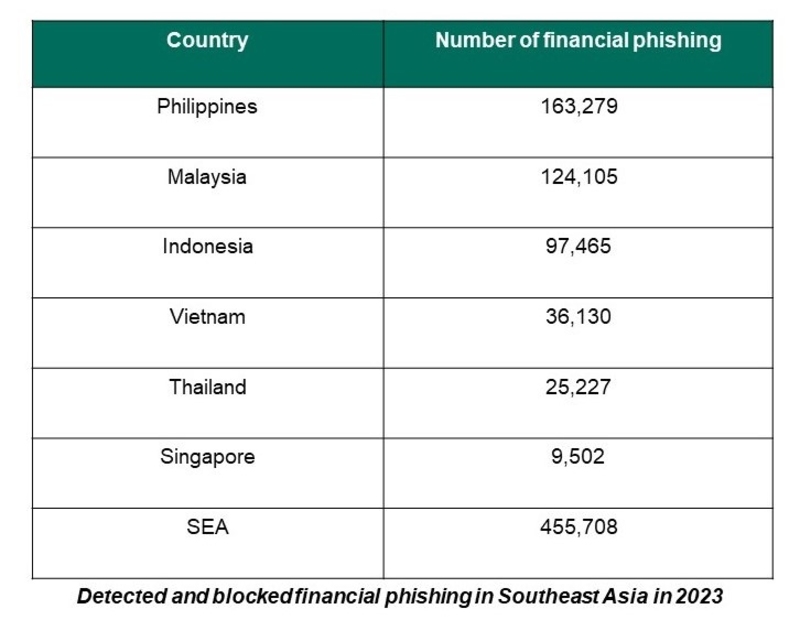THE Philippines finds itself at the forefront of a disturbing trend in Southeast Asia: a surge in financial phishing attacks targeting businesses.
Kaspersky’s 2023 data paints a concerning picture, with the Philippines experiencing a staggering 163,279 attempts — the highest number of financial phishing attempts in the region. This number dwarfs the figures of its neighbors, highlighting the archipelago’s vulnerability to these cyber scams.
This “evolving digital landscape” creates a large pool of potential victims for cybercriminals. Filipinos are increasingly conducting online transactions, banking activities, and online shopping, which expands the attack surface for phishing attempts.
However, cybersecurity awareness in the Philippines often lags behind this rapid digital adoption. Many businesses, particularly small and medium enterprises (SMEs), lack adequate training programs or security protocols to educate employees about phishing tactics. Employees who are unaware of red flags like suspicious emails, fake websites, or urgent requests for financial information become easy targets for phishing.

The country’s strong “mobile-first culture” is also a major factor. Filipinos heavily rely on mobile devices for internet access and online transactions. This creates unique vulnerabilities, as phishing attempts can easily reach them through text messages or messaging apps. These messages can bypass traditional email filters that might otherwise catch suspicious activity. The smaller screen size of mobile devices can also make it harder to identify subtle clues that indicate a phishing attempt.
Finally, economic factors also play a role. The Philippines is a developing country with a growing middle class. This economic growth makes Filipino businesses and individuals more attractive targets for cybercriminals seeking financial gain. Scammers might perceive Filipino businesses as having less robust security measures compared to established companies in developed nations.
The consequences of these phishing attacks can be devastating for Filipino businesses. A successful phishing attempt can lead to stolen financial information, disrupted operations, reputational damage, and even financial losses. This can be particularly crippling for smaller businesses with limited resources to recover.
Kaspersky emphasizes that combating this trend requires a multi-pronged approach. Businesses need to invest in employee training programs that raise awareness of phishing tactics. Implementing robust security solutions that can detect and block suspicious emails and websites is also crucial. Finally, strengthening overall cybersecurity protocols and procedures allows companies to better identify and respond to potential cyberattacks.
Kaspersky experts are quick to point out that good news is that Filipinos are known for their resilience and quick adaptation.
By taking proactive measures and recognizing the dangers of financial phishing, Filipino businesses and individuals can protect themselves from becoming victims of these cyber scams. Embracing a culture of cybersecurity awareness can empower Filipinos to navigate the digital world with confidence and keep their data and finances safe.





